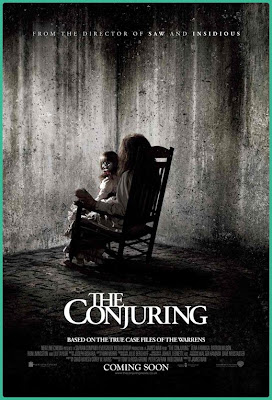2019 In Review: High Life
High on Lifelessness
AKA: Life is an existential void,
and so is this movie,
and yes that's the point.
* * * * *
“You’re special; So different; Like no one else. And I love that.”
Films like High Life are some of the most admirable branches to ever reach across the medium of cinema; movies with a legitimate ambition and sense of not just quality but genuine purpose to them; an actual artistic exploration that expands far beyond the depths of the common moviegoer’s threshold for an objective perspective of true cinema in its most raw form. In the age of the comic book blockbuster churning out loud content bi-monthly, we get original content like High Life two, maybe three times a year, if we’re lucky. That said, as captivating the film is, it also suffers from dwelling in a very slow-burned pretentious (and often pointless) state of ambiguity. And yet, ambiguity is kinda the point here.
To be fair, this is the work of renowned French filmmaker Clair Denis we’re talking about, and High Life being her first American film, you can’t knock the slow pace or obtrusive dialogue for feeling literally foreign. It’s the lack of concrete plot, or even the too-slow stretch of character development to ever feel like there’s enough to grasp in the overly ambitious picture. And the film is definitely ambitious. Denis’ use of genuine science fiction as a placeholder for the exploration (and destruction) of humanity is not only effective but profound. Following a group of prisoners on death row, for Denis to stage an entire film in a space station among the stars (with a crew on a suicide mission traveling towards a black hole for research nonetheless), is to say the least a bold concept, if not an entirely original one, for a film.
As for High Life following criminals, be them innocent or not, and taking place entirely in outer space, the amount of aggressively hostile tension between characters only makes for a far more claustrophobic setting, and one to be examined when it comes to Captain Dibs’ (Juliette Binoche) philosophy in taking great lengths to continue human reproduction in a sterile world where new life cannot be created.
PLOT!
But if there’s one actor to take note of, it continues to be Robert Pattinson as the questionably victimized Monte. Pattinson proved with Good Time that he’s among one of the best actors of his generation, and although his performance is much more dialed back this round, High Life is Pattinson’s movie from beginning to finish.
ACTING!
And when it comes to the storyline following Monte and his child (both the opening and closing bookends of the film), there’s an abundantly excellent film here. Watching Pattinson attempt to nurture a newborn baby in an Earthless, dystopian universe, while being the solo crew member of the ship that is their home, there’s a sense of moral and profound character to this dark version of the future, which is called back to in a very open-ended and even more vague ending.
AMBIGUITY!
It’s just everything that happens in between the beginning and end that’s muddled and ugly (and sure, perhaps that’s the point).
Between Dibs’ obsession with using science as a solution for sexual satisfaction (there’s a lovely, extended sequence of Binoche riding a Sybian [or “fuck box” as the characters call it]), the philosophical speeches of Earth-lover Tcherny (André Benjamin, formerly known as the artist Adré 3000), the tragic and misunderstood beauty of Boyse (Mia Goth), and all the horny rapist-prisoners in between, there’s plenty of character development to go around, but also a debatable amount of space (no pun intended) and runtime that could have been filled with depth that’s hinted at, rather than CONSTANT shots of the actors staring off into nothingness.
Perhaps it’s the impatient American filmgoer in us that latches onto the droll atmosphere, but the sense of bloated fat on the film, that seemingly exists only for the sense of artistic taste, could simply be done away with. The runtime could be trimmed by an EASY twenty minutes, Denis could still keep her ambiguous wallowing in the difficult characters, and we could STILL walk away with a dark and bold sci-fi film that feels as profound as High Life desires to be. The film simply has too much empty space, and that’s not in reference to all the stars and black holes. So much of the film is static shots of nothingness; the atmosphere of the desolate ship; the misery of the hopeless characters; the complete dread aboard the inevitable fate of the plot. Again, perhaps this was Denis’ intention all along. Her ability to stew in melancholy after all is as impressive as her eye for cinema, and perhaps the morbid feeling of emptiness was the entire point of her space opera.
Denis proves with one American-based film that her craft is genuinely breathtaking, not to mention her ability to go dark contains more balls than maybe any male filmmaker in the country right now. Perhaps it’s just that the foreigners know how to get dark and edgy, and do so effectively, even if the end result seems dull. Not unlike Lynne Ramsay when she tackled You Were Never Really Here, Denis gives an aggressively bold and violent craft to her style of indie filmmaking, which only improves the reputation of female filmmakers everywhere. To that degree alone, High Life deserves a well earned respect that despite its flaws, should be praised with uniqueness.
Or maybe this is just the kind of film Americans will write off as boring and pretentious, while they await their popcorn flicks with gluttony. Perhaps High Life isn’t the kind of movie Americans want, even if it’s the kind that we need.
*50 points to Denis*10 points to Pattinson*5 points to Binoche, you filthy, filthy animal.



